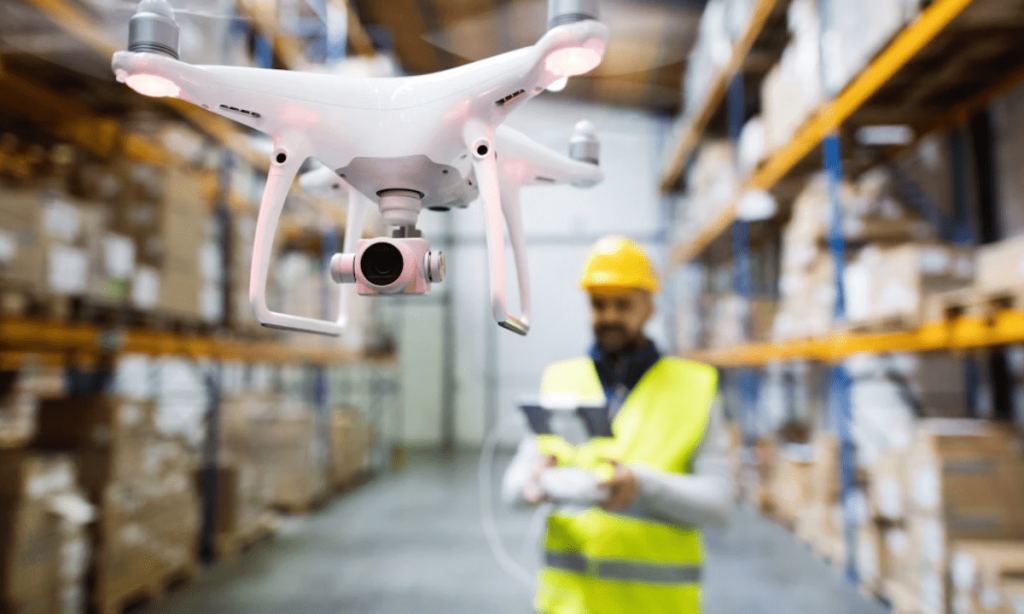
Introduction
The rise of drone technology is revolutionizing the logistics industry, bringing unprecedented speed, accuracy, and automation to warehousing and delivery operations.
As e-commerce and global trade continue to expand, companies are turning to drone warehousing and smart logistics to streamline supply chains, reduce operational costs, and improve customer satisfaction.
These innovations are shaping the future of how goods are stored, managed, and transported.
The Concept of Drone Warehousing
Drone warehousing involves the use of autonomous drones within warehouses to perform tasks such as inventory management, scanning barcodes, monitoring stock levels, and even transporting items between locations.
Equipped with sensors, cameras, and artificial intelligence, drones can operate efficiently in large storage spaces where manual inspection is time-consuming and prone to errors.
They enhance visibility across supply chains by providing real-time data on inventory movement and warehouse operations.
Smart Logistics and Automation
Smart logistics combines technologies like the Internet of Things (IoT), AI, robotics, and big data analytics to create an intelligent, connected supply chain.
When integrated with drone warehousing, it allows for seamless communication between machines, warehouses, and transport systems.
Smart logistics systems can predict demand, optimize delivery routes, and manage resources automatically, reducing delays and improving overall efficiency.
Benefits of Drone Warehousing and Smart Logistics
The integration of drones and smart logistics offers numerous benefits to businesses. It minimizes human error, increases inventory accuracy, and speeds up warehouse processes.
Drones can access hard-to-reach areas, perform audits faster, and reduce labor costs significantly.
Combined with data-driven logistics systems, companies gain better control over supply chains, improve delivery times, and enhance sustainability through optimized energy use and reduced fuel consumption.
The Future of Logistics Innovation
As technology evolves, drone warehousing and smart logistics will become essential components of modern supply chain management.
With advancements in autonomous navigation, AI-driven analytics, and 5G connectivity, drones will soon handle more complex tasks with minimal human intervention.
The future of logistics lies in automation, precision, and real-time intelligence—creating a world where goods move faster, safer, and smarter than ever before.
